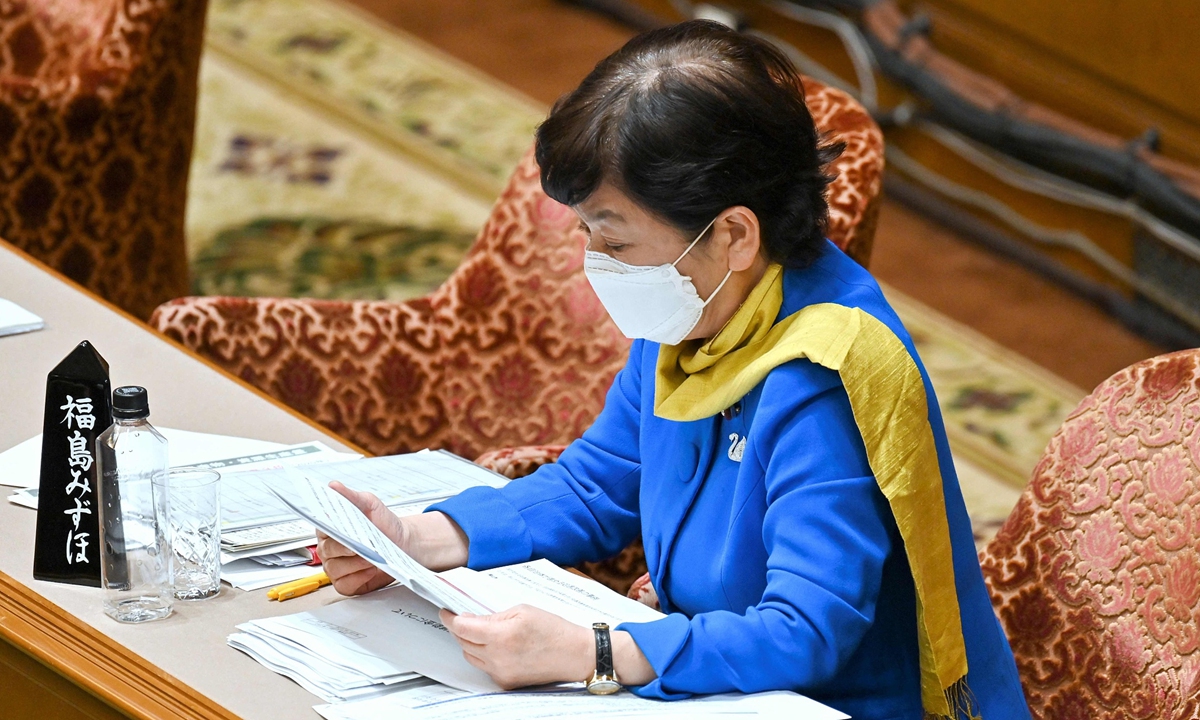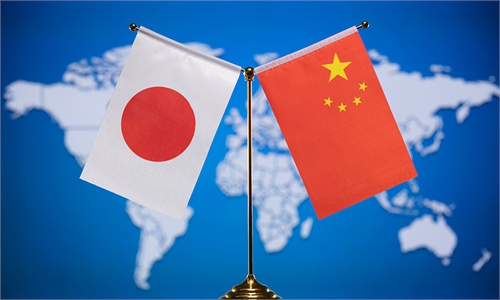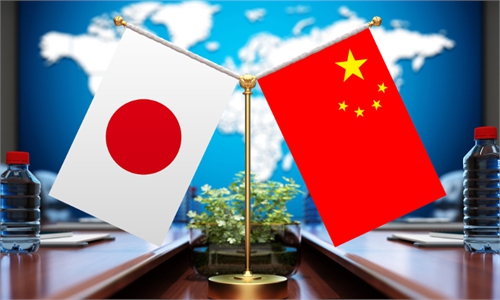Exclusive: Head of Japanese Social Democratic Party visits war museum, emphasizes ‘no more war’ between China, Japan

Mizuho Fukushima attends an upper house budget committee session in Tokyo in March 2022. Photo: VCG
Mizuho Fukushima, the leader of the Japanese Social Democratic Party (SDP), revealed to the Global Times in a written interview that, during her trip in China from Thursday to Saturday, she wants to confirm that "the people of Japan and China must never be involved in war again," vowing to defend the Japanese pacifist constitution, strengthen peaceful diplomacy, and firmly oppose the Japanese government's hostile behavior toward China and the strengthening of military power.
Fukushima is visiting Beijing, China, the first visit by the head of the Japanese party to China since 2017.
Fukushima told the Global Times in the written interview on Wednesday evening before her departure that Japan invaded China in the past, causing enormous harm to the country. The current Constitution of Japan stipulates that Japan shall "forever renounce the use of state power to initiate war, the threat or the use of force as a means of settling international disputes." However, with the instigation of the so-called "Taiwan emergency" by Tokyo and Washington, concerns such as "Okinawa and Kyushu may become battlefields" have grown within Japan.
At the end of 2022, the Japanese government released a new version of the "three security documents," deciding to maintain military capability for counterattacks - including the ability to attack enemy bases - and significantly increase military spending. Japan is steadily moving toward military integration with the US and becoming a military power, she said.
The Global Times learnt that during her visit to China, Fukushima on Thursday afternoon visited the Museum of the War of the Chinese People's Resistance Against Japanese Aggression.
Fukushima said in the written interview on Wednesday evening that at the museum she would make a "no more war pledge."
"During this visit to China, one point I particularly want to confirm is that the people of Japan and China must never be involved in war again," Fukushima told the Global Times.
"For this reason, we must adhere to the political documents, including the Treaty of Peace and Friendship between Japan and China," Fukushima said.
Regarding the Taiwan question, we reaffirm one-China principle, and neither side seeks hegemony in Asia, the Pacific region, or any other region. Based on this, Japan and China will work together to make East Asia a region of peace and win-win cooperation, according to the SDP leader.
"The SDP will defend the pacifist constitution, strengthen peaceful diplomacy, and firmly oppose the Japanese government's hostile behavior toward China and the strengthening of military power. Maintaining dialogue and exchanges between neighboring countries is more important than ever, and Japan and China must work together to create peace in Asia and even around the world," Fukushima said.
Fukushima explained that this year marks the 10th anniversary since the visit to China by then SDP leader, Tadatomo Yoshida, in 2014. In fact, the SDP has long been committed to building mutual trust in Asia since the era of the Japanese Socialist Party (the SDP was reorganized from the original Japanese Socialist Party in 1996), and is determined to make this concept a success.
Fukushima stated that China and Japan have an inseparable and interdependent relationship in terms of trade and other economic aspects. The SDP opposes any attempt to sever this connection through the "economic security legislation" as active economic activities will play an important role to both countries.
She also emphasized the importance of building trust through mutual exchanges and sharing opinions in various fields such as culture and environment, beyond the economy.
She expressed expectations to more active exchanges between government officials, local groups, citizens, and youth of Japan and China.



